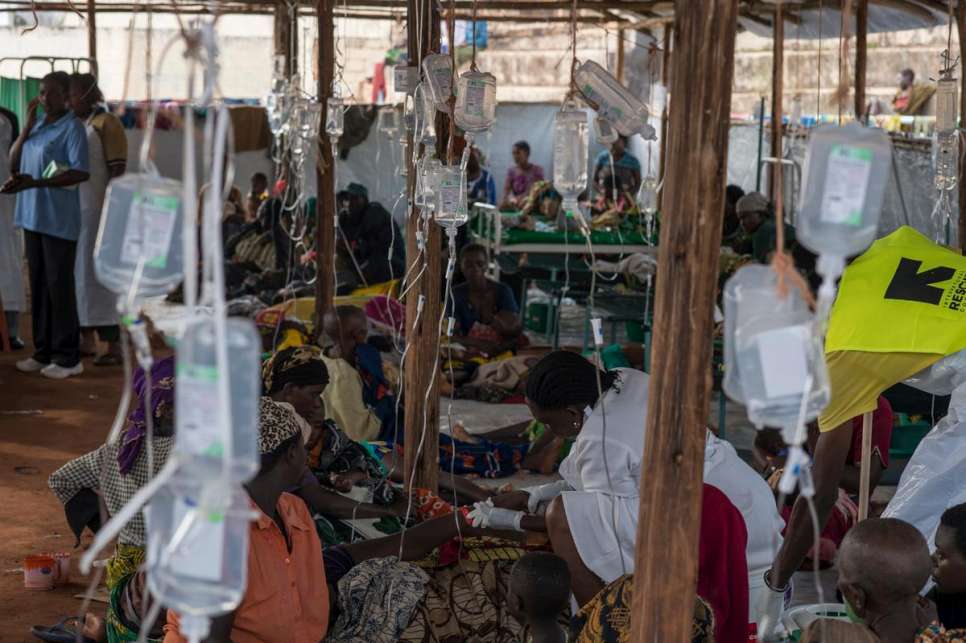Health
Health and nutrition programmes are delivered with an emphasis on primary health care and support for secondary hospital care. Our healthcare interventions are based on needs, risks and vulnerabilities, which are determined by a health and nutrition partner and/or UNHCR staff.
Among forcibly displaced populations in developing countries, the top five killers of children under the age of five are malaria, malnutrition, measles, diarrhoea and respiratory tract infections. Our priorities and those of our partners at the start of an emergency are measles immunization, nutritional support, control of communicable diseases and epidemics, implementation of the reproduction health measures and public health surveillance. As the situation stabilizes, these services are enlarged. In more developed and urban settings, public health priorities among adults shift toward cardiovascular and chronic diseases and cancers.
Using data to protect refugee health
We use an online platform called Twine to manage and analyse public health data collected in refugee operations. Data is collected using a number of different tools, which cover a range of sectors and operational settings. UNHCR and partners select the most appropriate combination of tools in Twine to design, monitor and evaluate their public health programmes.
The aim is to improve the health status of people of concern through evidence-based policy formulation, improved management of health programmes and, ultimately, direct actions that improve refugee health.
Public Health: Strategies, Documents and Reports
- Public Health Strategies and Policies
- Mental health and psychosocial support
- Public Health Lessons Learned and Field Experiences
- Public Health Assessment, Monitoring, Evaluation
- Public Health Annual Reports
- UNHCR's Principles and Guidance for Referral Health Care for Refugees and Other Persons of Concern


